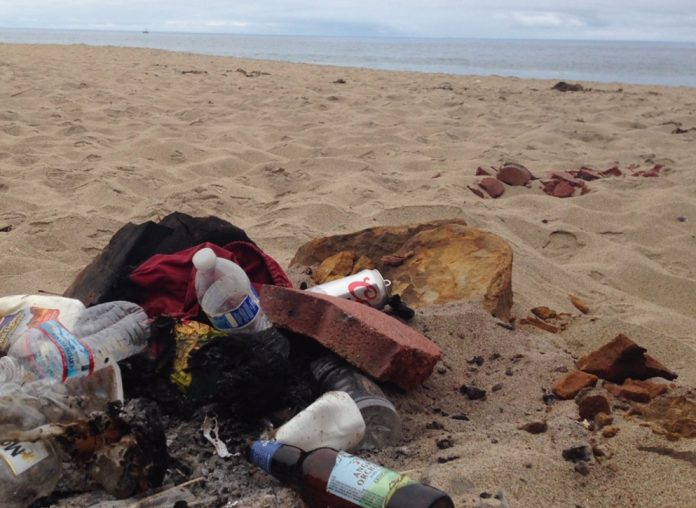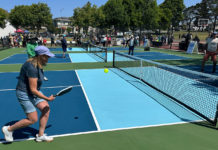
SANTA CRUZ COUNTY—Every year, volunteer groups across Monterey Bay participate in a beach cleanup the day after the Fourth of July.
The holiday is known to bring large crowds to local beaches for celebrations. Many set off fireworks, leaving large amounts of waste that is easily swept up during high tides.
Despite the ongoing global Covid-19 pandemic and shelter-in-place restrictions, cleanups were still needed last weekend after eager crowds descended upon the beaches.
Unfortunately, also due to social distancing guidelines, certain organizations were unable to host the official cleanup events they normally would. This included Save Our Shores, which usually organizes July 5 cleanups across Santa Cruz and Monterey counties.
Instead, the nonprofit headed up an outreach campaign the week prior to the holiday. They posted on social media, giving tips to people about how to safely host their own, socially-distant cleanups.
“It was quite different from what we usually do,” said SOS Program Manager Emily Pomeroy. “We would normally be out there, handing out bags, helping out. But we couldn’t do that. So we went a different route.”
SOS had volunteers helping with trash cleanups at nine beaches. Individual groups, SOS staff and local Adopt a Beach groups were present. Nearby neighbors also helped out, cleaning debris off the beach before the other groups arrived.
“It was great to see people doing what they could, despite the circumstances,” Pomeroy said.
This year’s cleanup was especially challenging, Pomeroy admitted, because the full moon caused intense, high tides. Some beaches, such as Sunny Cove near Twin Lakes, were almost halfway underwater before volunteers reached them.
Pomeroy explained how pyrotechnics can disrupt marine wildlife—from the noise and light pollution harming sea birds to the fireworks themselves being swept into the ocean. The plastic from a firework will slowly break down, but it will never biodegrade, or turn into organic matter.
“So those plastic pieces will just break into smaller and smaller pieces… turn into microplastics, and then be consumed by marine life,” she said.
She added that even people who do not eat fish are susceptible, as fertilizers such as fish meal are used in agriculture.
“We have to remember that protecting the ocean is more than just protecting nature,” she said. “It’s protecting ourselves and our health.”
•
For information about Save Our Shores and how you can help keep beaches clean visit saveourshores.org.












